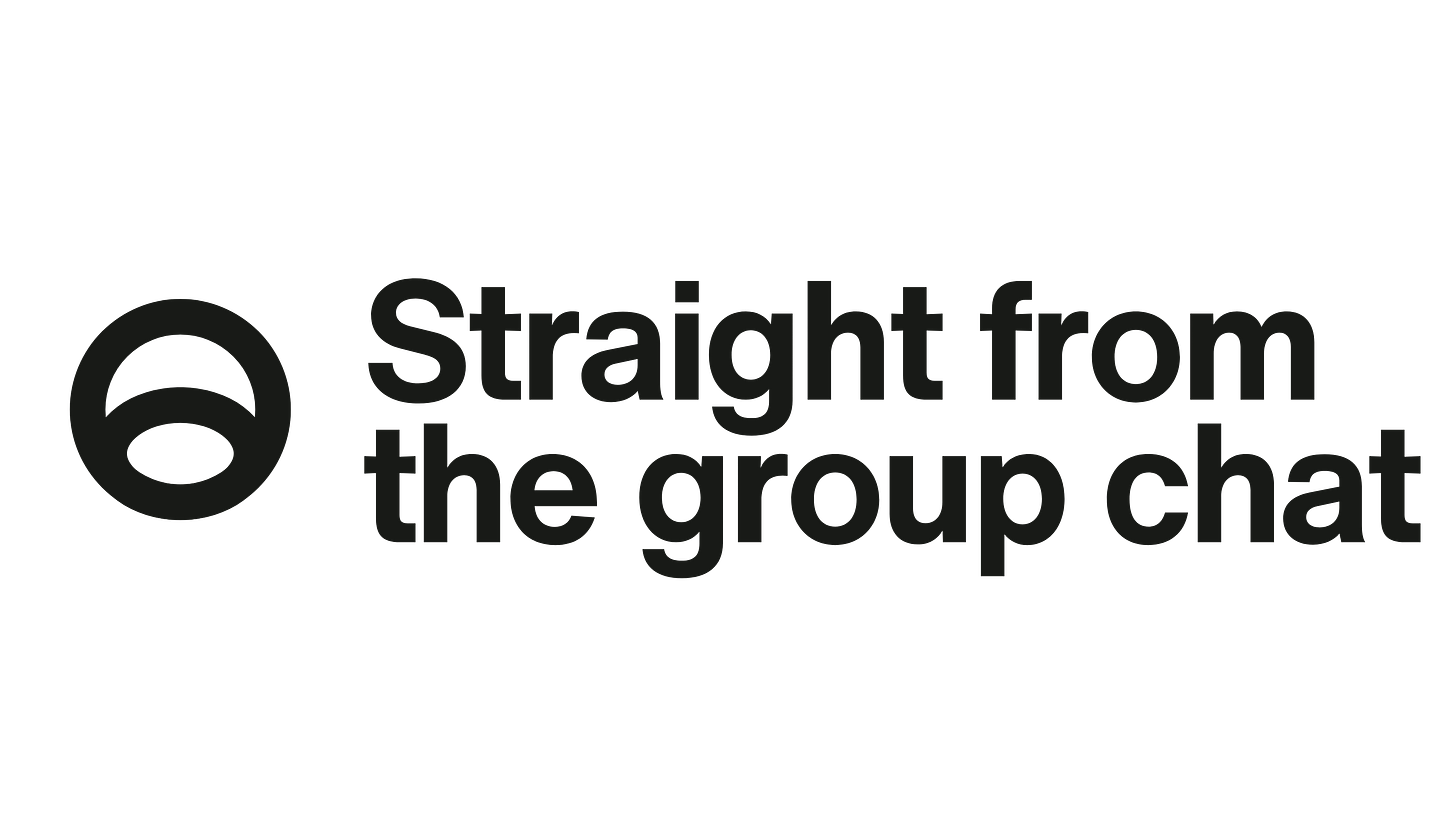Every Friday
To the ground floor subscribers—we’re finding our way.
Drunk on Peace and Progress
Happy Friday, team — we made it! It's been a packed week: more controversial cabinet picks, the trade war with our neighbors that wasn’t, and dems still trying to find their footing with the election of a new party leader. Most importantly, we’re resurrecting this god-tier Super Bowl wing recipe from Matty Matheson for Sunday (thank us later).
The crypto lore deepens as Father Czar David Sacks speaks of a promised land backed by Tim Scott and the fellow Ag committee chairmen. One of us still believes Cardano will revolutionize public education; another can’t stop compulsively stacking more $PLTR — last week’s $NVDA play: mooning.
Some are saying the Gaza “take over” is mostly about encouraging other counties to accept Palestinian refugees. This may fall into the alleged Trump 72 hour rule, but we’re not so sure. A quick military stop-over to rebuild a failed state in the Middle East - what could go wrong?
Elsewhere, Ben Stiller’s PR team is earning their retainer, as he’s now fending off disinfo about his time in Ukraine. We preferred him in the "Snooze" music video.
Oh, and in case anyone was wondering—Relay’s USAID funding remains untouched.
The Relay momentum continues.
Top of Mind
Behind The Screens
Deep research feels less like a chatbot and more like an autonomous scholar, unspooling nuanced answers with a level of diligence that borders on obsessive. If you’ve ever had a question that felt too niche, too complex, or too time-consuming to dig into yourself, deep research might just be the closest thing to having a personal think tank at your fingertips. White-collar workers everywhere are potentially suiting up for one last season, as murmurs of relegation are on the horizon.
RPLY is tackling the modern dilemma of “text debt” that feels both brilliant and slightly unsettling. It’s a lifeline for chronic forgetters, an AI-powered ghostbuster for those haunted by unread messages. But there’s an obvious tradeoff—how much automation is too much when it comes to human connection? While RPLY’s privacy measures seem airtight, the very act of handing over full message access seems cursed.
From Washington
The Free Press breaking the Daniel Penny-Andreesen Horowitz story isn’t just a scoop—it’s a signal. Legacy media no longer holds the exclusive keys to influence, and the rise of independent outlets like The Free Press is proof that trust is being redistributed. The gatekeepers are losing their grip, and the future of journalism belongs to those who can build credibility outside the traditional power structures.
Richard Hanania argues Trump’s second term is shaping up to be less of a political comeback and more of a constitutional reckoning. His aggressive assertions of executive power—whether through impoundment, agency overhauls, or judicial maneuvering—aren’t just an extension of his first presidency; they represent a full-scale reengineering of federal authority. The legal debates fueling these moves aren’t new, but the conditions—conservative courts, a compliant Congress, and an emboldened executive—make this moment uniquely transformative.
Ctrl+Alt+Culture
ICYMI: Happy Hour Edition
Dario Amodei + DeepSeek’s New Burdens (ChinaTalk)
Making the U.S. the home for open-source AI (Interconnects)
Stablecoin Bill Pushed as Trump Sets Crypto-Friendly Agenda (Bloomberg)
Lifestyle: 33 Ways To Improve Your Life, Japanese Style | The Journal (MR PORTER)
Meter: The internet utility (Not Boring)
11 Elements of American AI Dominance - Jacob Helberg (The Republic Journal)
I Ran U.S.A.I.D. Killing It Is a Win for Autocrats Everywhere (NYT)
Researchers created an open rival to OpenAI’s o1 ‘reasoning’ model for under $50 (TechCrunch)
Debunking American exceptionalism (Financial Times)
It’s Not That Deep, Randy
We all need a new house mix to get us through the work week. Chris Luno is the way.
Stavvy forever.
Gobs of ranch from Matty.
Join the Relay Community
The competition for our clicks, attention, and time has never been fiercer. More apps, more news, more of everything. It’s cursed. Big Tech has centralized the web, commoditizing our screen time and dictating how we consume information. As our online selves continue to age, how do we ensure we’re truly tuned in—not just absorbing, but thinking critically?
Relay is a collective effort to distill information across tech, politics, and culture. It stands in direct opposition to the hollow drift toward cheap consumption, regrettable minutes, empty engagement, and a distorted understanding of the real world. It’s a refusal to let algorithms erode our ability to think critically—and an invitation to participate meaningfully, despite apathy becoming the social norm.
We’re focused on more signal, less noise. Substance over style.













